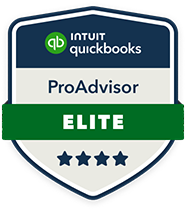Executive Summary
The IRS and Treasury have recently issued final regulations (T.D. 10002) that provide authoritative guidance on the reporting and payment of excise taxes for corporate stock repurchases made after Dec. 31, 2022. This new regulation is part of the broader effort to apply the 1% excise tax on stock buybacks, a key element of the Biden administration’s 2022 corporate tax changes. These regulations take effect on June 28, 2024, and apply to publicly traded corporations that repurchase their stock.
Background
The proposed regulations on the procedural aspect of the excise tax was published on April 12, 2024. These were part of the broader implementation of section 4501, which generally imposes a 1% excise tax on stock repurchases by publicly traded corporations. Notice 2023-2 also provided initial guidance on this tax, giving taxpayers a preliminary framework to follow until the final regulations were issued.
What’s New: Finalized regulations
The final regulations bring several important updates and clarifications that taxpayers need to be aware of:
Recordkeeping requirement:
The final regulations confirm the emphasis on detailed recordkeeping. Covered corporations (i.e., any domestic corporation whose stock is traded on an established securities market) must maintain comprehensive records to accurately establish the amount of repurchases, adjustments or exceptions. Despite some comments suggesting a limitation, the IRS decided to keep the strict recordkeeping requirements.
Return requirement:
- RICs and REITs Exemption:The final regulations provide a notable exemption for Regulated Investment Companies (RICs) and Real Estate Investment Trusts (REITs). These entities are exempt from filing Form 7208 if all their repurchases qualify for statutory exceptions. RICs and REITs will still be subject to the recordkeeping requirement.
- Filing Returns: In general, the return is due in the first full calendar quarter after the end of the taxable year of the covered corporation. The regulations clarify that returns are required only for taxable years in which repurchases are made. This means that if a corporation does not repurchase any stock in a given year, it is not required to file a return for that year. The due date for filing Form 720 for taxable years ending on or before June 28, 2024, is Oct. 31, 2024 (third quarter of 2024).
Conclusion
With an effective date of June 28, 2024, the final regulations on the stock repurchase excise tax bring much-needed clarity and structure to the reporting and payment processes for publicly traded corporations. One of the most significant takeaways is that these final regulations establish a filing deadline for the excise tax for 2023 and future years. By understanding and adhering to these new regulations, covered corporations can ensure compliance with the 1% excise tax on stock repurchases, thereby avoiding potential penalties and ensuring accurate tax reporting.
This article was written by Deborah Gordon, Patrick Phillips, Nate Meyers and originally appeared on 2024-07-08. Reprinted with permission from RSM US LLP.
© 2024 RSM US LLP. All rights reserved. https://rsmus.com/insights/tax-alerts/2024/irs-finalizes-regulations-on-stock-repurchase-excise-tax.html
RSM US LLP is a limited liability partnership and the U.S. member firm of RSM International, a global network of independent assurance, tax and consulting firms. The member firms of RSM International collaborate to provide services to global clients, but are separate and distinct legal entities that cannot obligate each other. Each member firm is responsible only for its own acts and omissions, and not those of any other party. Visit rsmus.com/about for more information regarding RSM US LLP and RSM International.
The information contained herein is general in nature and based on authorities that are subject to change. RSM US LLP guarantees neither the accuracy nor completeness of any information and is not responsible for any errors or omissions, or for results obtained by others as a result of reliance upon such information. RSM US LLP assumes no obligation to inform the reader of any changes in tax laws or other factors that could affect information contained herein. This publication does not, and is not intended to, provide legal, tax or accounting advice, and readers should consult their tax advisors concerning the application of tax laws to their particular situations. This analysis is not tax advice and is not intended or written to be used, and cannot be used, for purposes of avoiding tax penalties that may be imposed on any taxpayer.

At Keegan Linscott & Associates, our people are our greatest asset. We embody a commitment to our people in our culture of openness, cooperation, teamwork and community service. Keegan Linscott provides exceptional training, coaching, a positive work/life balance and opportunities for personal and professional development. Keegan Linscott’s dedicated team of multi-faceted professionals stand ready to provide the highest quality of audit, tax and consulting services to our valued clients and community. We are leaders in our practice areas and are uniquely qualified to provide innovative and practical solutions.
As a group of practitioners working together, the professionals at Keegan Linscott are able to specialize in specific areas of accounting, audit, taxation, and consulting – a key advantage which allows us to offer a higher standard of service quality.
For more information on how Keegan Linscott & Associates, PC can assist you, please call (520) 884-0176.




